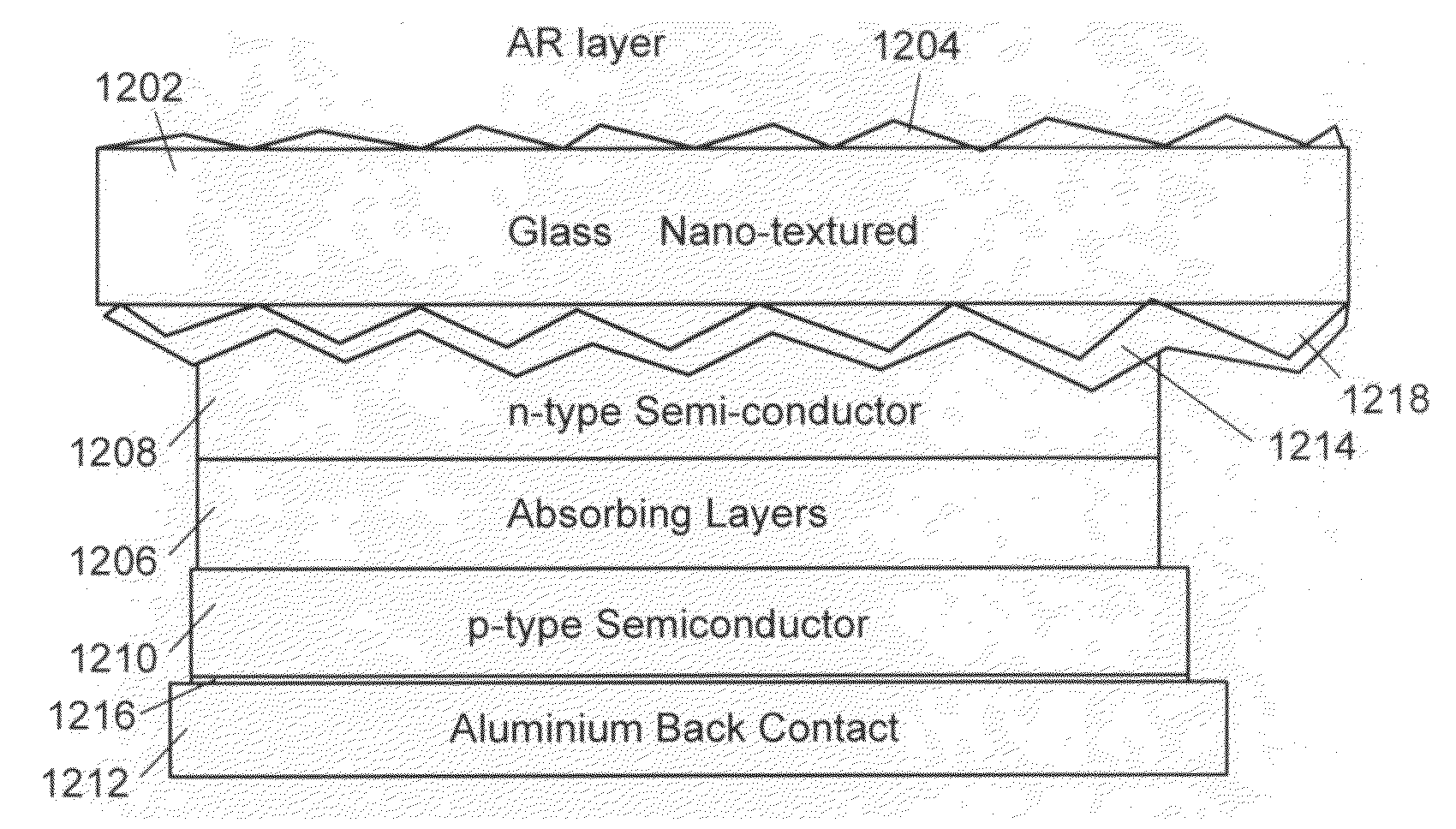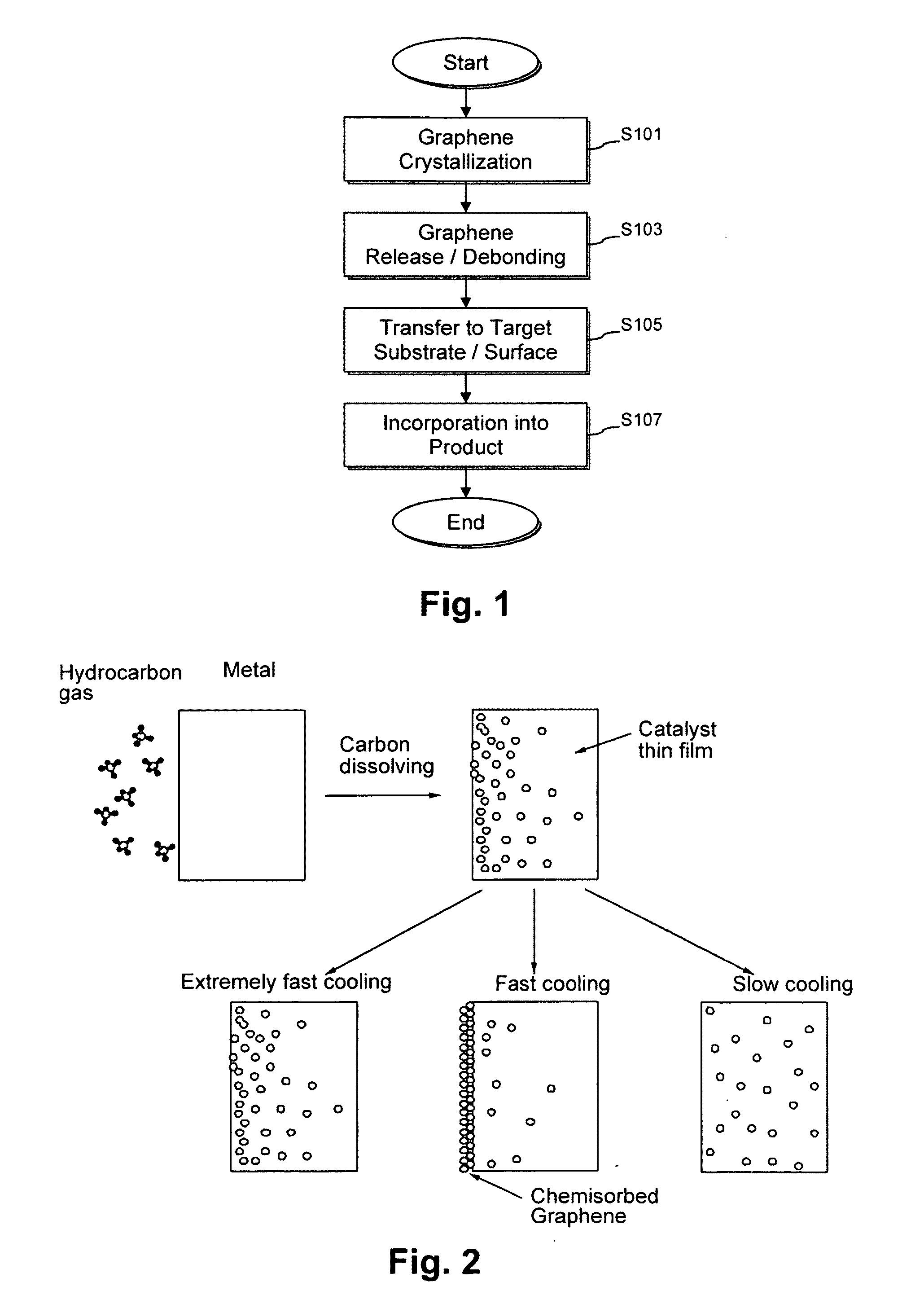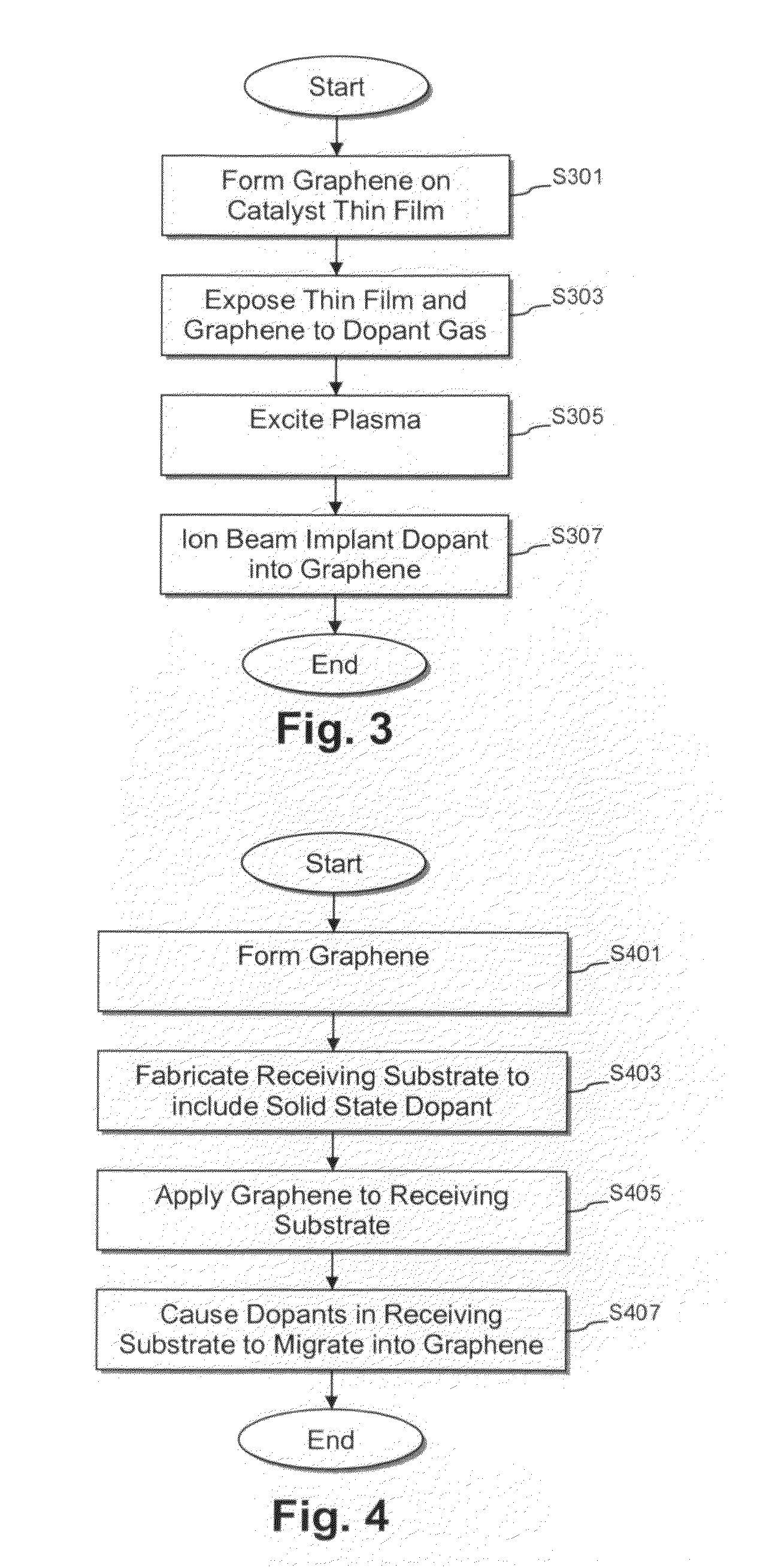Debonding and transfer techniques for hetero-epitaxially grown graphene, and products including the same
a transfer technique and graphene technology, applied in the field of thin films comprising graphene, can solve the problems of inability to use ito and fto, and the inability to bond and transfer in the near infrared region
- Summary
- Abstract
- Description
- Claims
- Application Information
AI Technical Summary
Benefits of technology
Problems solved by technology
Method used
Image
Examples
example process
Flow
[0069]FIG. 10 is an example process flow that illustrates certain of the example catalytic CVD growth, lift-off, and transfer techniques of certain example embodiments. The example process shown in FIG. 10 begins as the back support glass is inspected, e.g., using a conventional glass inspection method (step S1002) and washed (step S1004). The back support glass may then be cleaned using ion beam cleaning, plasma ashing, or the like (step S1006). The catalyst (e.g., a metal catalyst) is disposed on the back support, e.g., using PVD (step S1008). It is noted that the cleaning process of step S1006 may be accomplished within the graphene coater / reactor in certain example embodiments of this invention. In other words, the back support glass with or without the metal catalyst thin film formed thereon may be loaded into the graphene coater / reactor prior to step S1006 in certain example embodiments, e.g., depending on whether the metal catalyst layer is deposited within or prior to th...
PUM
| Property | Measurement | Unit |
|---|---|---|
| thick | aaaaa | aaaaa |
| thick | aaaaa | aaaaa |
| thick | aaaaa | aaaaa |
Abstract
Description
Claims
Application Information
 Login to View More
Login to View More - R&D
- Intellectual Property
- Life Sciences
- Materials
- Tech Scout
- Unparalleled Data Quality
- Higher Quality Content
- 60% Fewer Hallucinations
Browse by: Latest US Patents, China's latest patents, Technical Efficacy Thesaurus, Application Domain, Technology Topic, Popular Technical Reports.
© 2025 PatSnap. All rights reserved.Legal|Privacy policy|Modern Slavery Act Transparency Statement|Sitemap|About US| Contact US: help@patsnap.com



